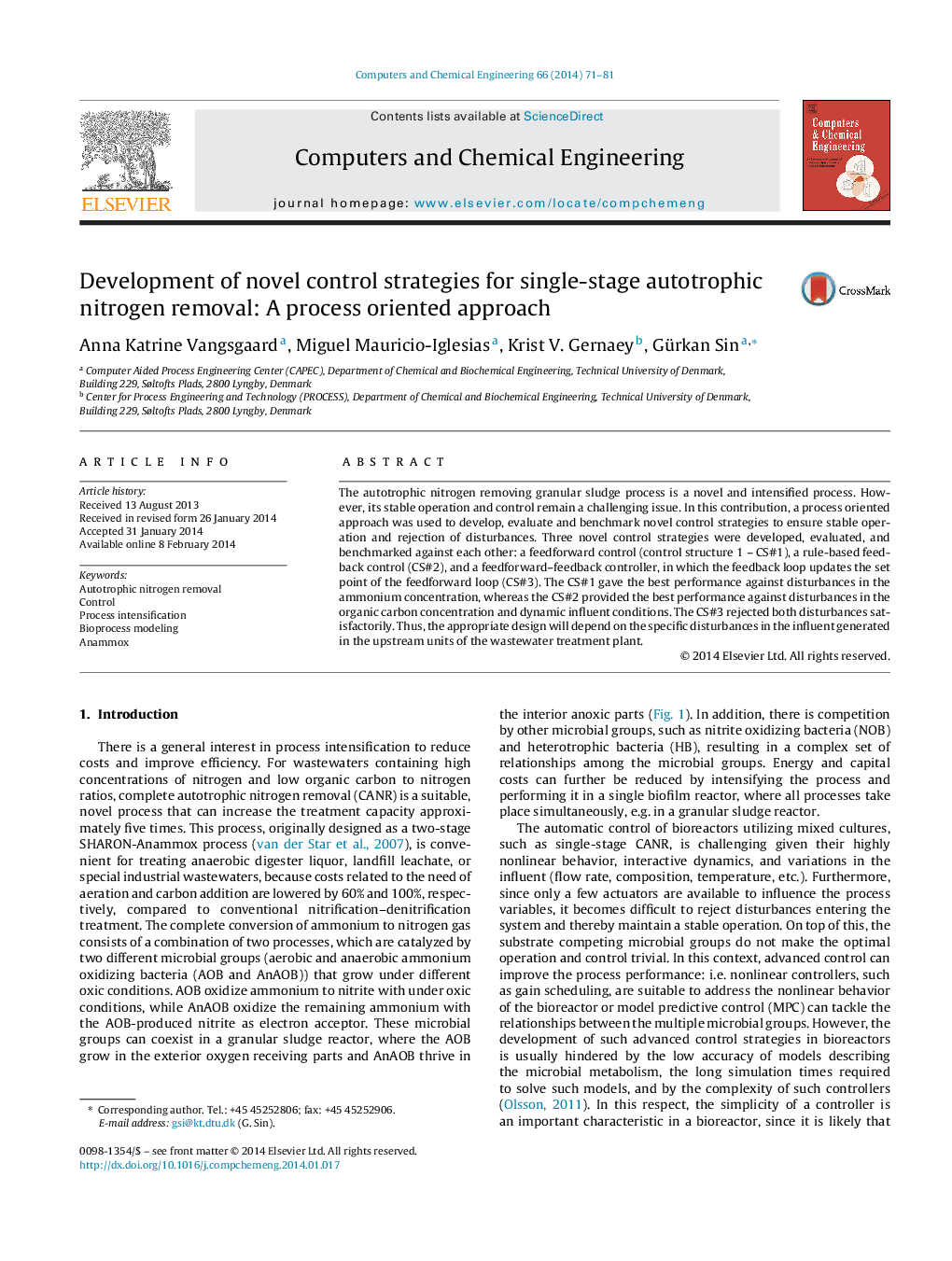| Article ID | Journal | Published Year | Pages | File Type |
|---|---|---|---|---|
| 172400 | Computers & Chemical Engineering | 2014 | 11 Pages |
•Three control strategies are developed through a systematic process oriented approach.•A feedforward controller was best at rejecting disturbances in the ammonium load.•A feedback controller was best at rejecting disturbances in the organic carbon load.•Thorough investigations of incoming disturbances are of essential importance.
The autotrophic nitrogen removing granular sludge process is a novel and intensified process. However, its stable operation and control remain a challenging issue. In this contribution, a process oriented approach was used to develop, evaluate and benchmark novel control strategies to ensure stable operation and rejection of disturbances. Three novel control strategies were developed, evaluated, and benchmarked against each other: a feedforward control (control structure 1 – CS#1), a rule-based feedback control (CS#2), and a feedforward–feedback controller, in which the feedback loop updates the set point of the feedforward loop (CS#3). The CS#1 gave the best performance against disturbances in the ammonium concentration, whereas the CS#2 provided the best performance against disturbances in the organic carbon concentration and dynamic influent conditions. The CS#3 rejected both disturbances satisfactorily. Thus, the appropriate design will depend on the specific disturbances in the influent generated in the upstream units of the wastewater treatment plant.
